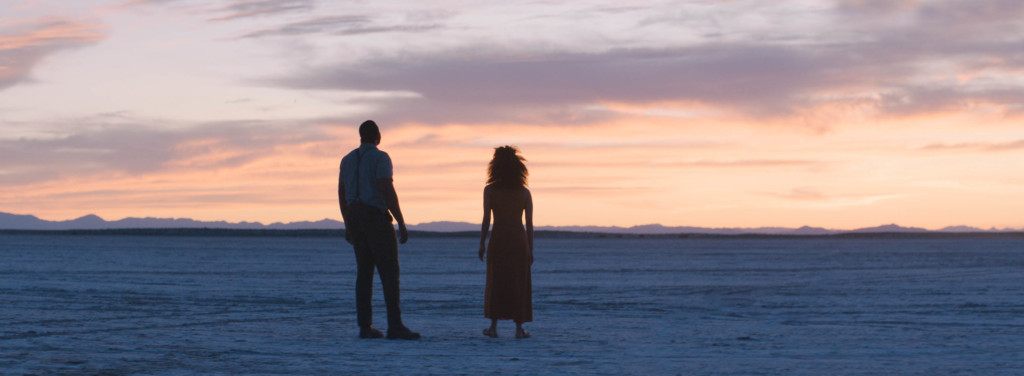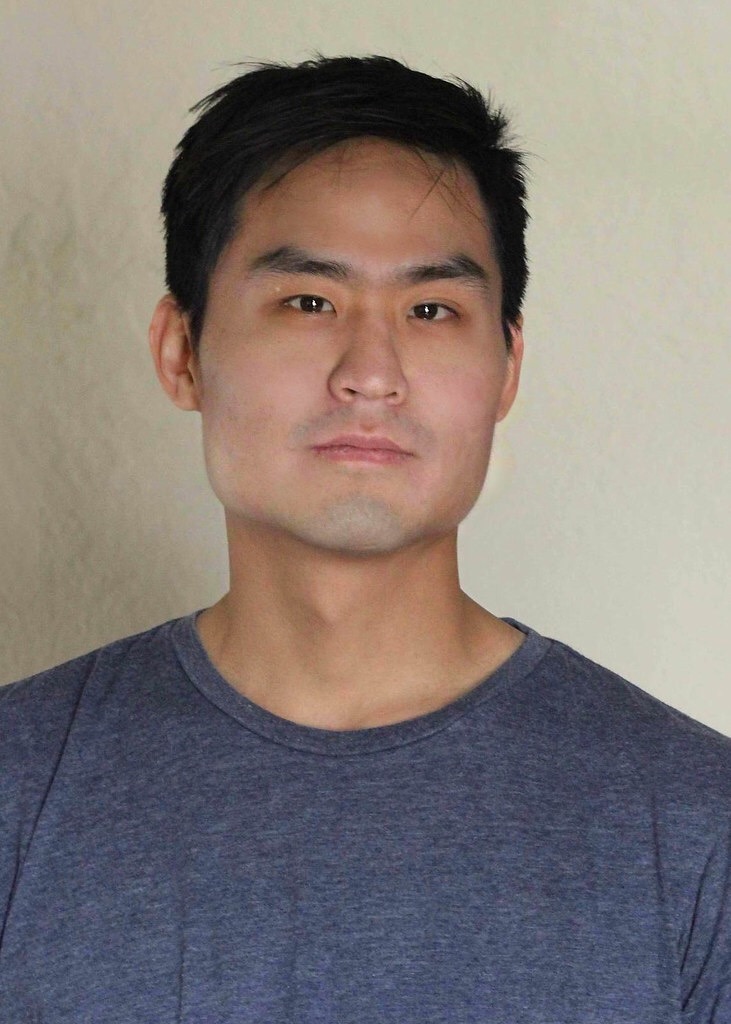After a Salt Lake City screening of Edson Oda’s Nine Days, a friend mentioned that this was the film he had been waiting for years to see that represents what he perceives as having a true Sundance experience.
This is not an exaggerated assessment. With a story demonstrating how the metaphysical cosmic dimensions of science fiction make for a new theology in the 21st century, Nine Days is a stupendous realization of Oda’s deepest inspirations, influences and experiences. This emanates not just from the filmmakers and literary muses that touch him the most but also the memories of a beloved uncle who took his own life at the age of 50, just when Oda was 12 years ago.
Filmed in various Utah locations including Salt Lake City and the surrounding area, the main destinations for shooting the production occurred more than 80 miles west of the state capital in the Knolls recreation area and the nearby Bonneville Salt Flats. As a side note, Utah’s bounty of other-worldly landscapes not only has attracted filmmakers but also has inspired the state’s tourism slogan Life Elevated. Few people have ever explained satisfactorily just what Life Elevated encompasses as a connecting point for Utahns and individuals who are visiting the state for the first time.

Nine Days, however, unlocks a broader underlying meaning for comprehending what inspires people to ground their metaphysical existence in Utah. By the end of this enthralling cinematic experience, we realize what Oda’s story could mean for individual interpretation. Our bodies (and souls) are never unchanging nor static. Rather than being material entities, we essentially embody processes, always in flux as everything shifts, grows, deteriorates and withers away. The materiality of the natural sights, forces and landscapes we encounter and engage with go beyond random and superficial judgment. What matters the most is our willingness to embrace every circumstance around us, including the inevitable depressing, debasing and shattering moments we might encounter. This was part of the message of the Transcendentalists. In Walden, Henry David Thoreau explained why he was critical of those who admired or aspired to philanthropy because one needed to do more than make the donation or gift. He said one must “spend yourself with it,” by doing the act, regardless of any personal inconvenience that might be required to fulfill the objective. Only then, can we find the hope of breathing fully the love, hope and the power of a rejuvenated life.
The film’s central character is Will (superbly interpreted by Winston Duke of Black Panther and Us), who monitors a wall covered with old television sets. He is tasked with selecting who will fill a place on Earth once a person passes. He approaches this process with the dispassionate empiricism of a scientist who just happens to be carrying out his work in a cosmic laboratory. Once a candidate is reborn, Will monitors their progress meticulously, making detailed notes on a legal pad, including the number of days since a spirit was chosen to be reborn.
The spirit’s personality already is determined generally. Will tells them that they will recognize their senses sharpen as they are reborn but they also will have no memory of the nine-day process that led to their selection. Will tests five candidates with various tasks and hypotheticals and he eliminates candidates until there are two left on the final day. Part of the process involves them watching the television screens and documenting the experiences from living individuals to which they connect and relate. Will is assisted by Kyo (Benedict Wong of Doctor Strange), who persistently challenges Will’s methods and decisions throughout the process.
The five spirit-candidates for this latest selection represent a spectrum of human thinking. The young man Kane (Bill Skarsgård) believes that victims should consider violence in seeking retributive justice. Alex (Tony Hale) is more interested in care-free, gregarious camaraderie than he is in thinking about the most serious dilemmas and their consequences. Mike (David Rysdahl) displays striking, original creative expression but he also lacks the confidence to share his gifts with others who might be inspired by them. Maria (Arianna Ortiz) has good intentions and plenty of charm but she also is more concerned about pleasing people by doing what she thinks is expected of her than by challenging or disagreeing with them. Finally, there is Emma (Zazie Beetz). Energetic and positive, she is like the student who goes outside the margins, preferring to ignore Will’s instructions and follow her own muse and passions.

As the process unfolds, Will’s focus is disrupted by a tragic incident involving one of his previous selections, as captured on one of his monitoring screens. Will struggles to comprehend what happened to this individual. He is particularly proud of this selection –
a young violinist with great promise. This event is so shocking that it affects the typical methodical protocol he follows in finalizing his selections.
Some of the most unexpectedly emotional moments in the film occur when the candidates learn of their rejection. Once they are eliminated, they fade and disappear but, as a final act, Will gives them the opportunity to select a moment from what they have seen and then he recreates their request before they disappear. Mike, the artist who lacked the confidence to believe in the quality of his abilities, decides that he wants Will to recreate a scene at a beach along the ocean. It is an incredibly moving scene.
Oda wrote the screenplay and attended Sundance Institute’s 2018 Screenwriters Lab to advance this project. Oda, with Japanese and Brazilian roots, completed his university education in São Paulo. While he grew up in an environment with a strong Catholic background, he says, in an interview with The Utah Review, that he developed the story with the hope of attracting everyone to it, regardless of their religious beliefs and with respect to those beliefs. Among his cinematic influences are Stanley Kubrick, Michel Gondry, Quentin Tarantino, and Spike Jonze. He immediately knew the Utah locations would be perfect for the film. “This was my first time visiting the state, and, my God, it was exactly what we had in mind,” Oda, who lives and works in Los Angeles, says.
Nine Days was shot last June and August, encompassing 24 days of principal photography and nine days of B-unit filming. “It was a perfect location to construct a home in a desert-like landscape for the film,” says Jason Michael Berman, producer and president of Mandalay Pictures. “Utah was phenomenal for all of our purposes, including the tax credit, the availability of professional production crews, its proximity to Los Angeles, and the fact that Edson [Oda] had developed the script through the Sundance screenwriters’ lab.”
Nine Days was supported by the Utah Film Commission’s Motion Picture Incentive Program (MBIP), which offers a tax credit of between 20 percent and 25 percent where at least $500,000 is spent to make a film.
For Berman, this is the seventh project that has been accepted into Sundance since 2010. “Of all the projects, I consider this a personal favorite,” He adds.
